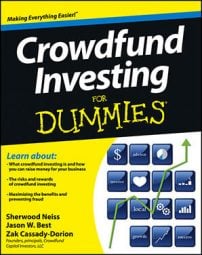You’ll need to do a bit of independent research and reading to find out what your rights are as a crowdfund investor in a specific company’s campaign. For starters, your rights depend on whether you invest in debt or equity.
If you’re an equity investor, your rights largely depend on the type of stock you purchase, such as common stock or preferred stock. You may have certain voting rights as a stockholder, for example. The online funding portal for the campaign is the best resource for this information; your rights and responsibilities as an investor should be spelled out in documentation associated with the campaign offering.
The same is true if you buy into the company on the debt side: There are many ways to structure a debt deal, and you need to know the specifics for your individual case. Here are some things you should make sure you know before you purchase private company debt:
What is the payoff schedule?
When will the company start paying down the loan: right away, or only after it starts producing revenue?
Is there a time limit for how long the company has to pay you back?
Are any contingencies built into the deal that would allow the company to postpone debt payments?
Is the company allowed to pay off the balance early without interest (prepayment)?
Is the payoff revenue-based financing (RBF)? RBF terms allow the company to pay off the loan based upon a certain percentage of revenue.
The right to be informed
Whether you own debt or equity, and no matter what type of debt or equity you own, you have the right to receive regular updates on the progress of the company. The entrepreneur or small business owner should send out reports to investors at least on a quarterly basis, if not more often. (The entrepreneur or owner should be very clear from day one about how often such reports will be released.)
These reports should include the following types of updates:
Problems encountered since the last report
Successes achieved
Revenue generated
Major expenses incurred, including any major unplanned expenses (along with explanations of why they were necessary)
In addition, you should also receive an annual report that is more detailed and includes thorough financial statements that reflect the company’s cash position, revenues and expenses for the entire year, and more.
The right to sell
The biggest right you have as an investor is the right to sell your shares in the company after the 12-month holding period is complete. (If you’re holding debt in the company, a similar holding period may apply.)
If things aren’t going too well for the business, the entrepreneur or business owner will probably try to discourage you from selling your stock or debt. That’s smart for him to do; the business needs all the financial stability it can get, especially when times are tough. But you must realize that no one can stop you from selling.

